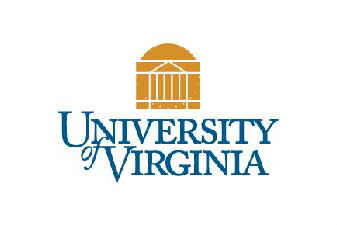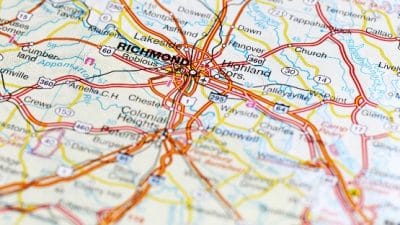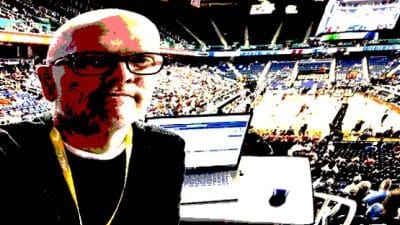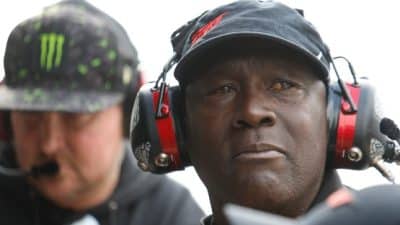
This Mellon fund aims “to recognize visionary leadership, distinctive collections, and commitment to both campus and community, as well as historically overlooked artists and histories,” according to the Mellon Foundation’s grant description. As the only museum in the United States dedicated to Aboriginal art, the Kluge-Ruhe museum “serves a vital function,” the foundation wrote.
When Kluge-Ruhe had to close its doors because of the COVID-19 pandemic, the museum staff found that pivoting to work remotely had some unexpected advantages.
As the museum staff retooled how they work with Aboriginal artists and exhibit their contemporary art, the museum opened virtually to visitors and program attendees from around the world, Kluge-Ruhe Director Margo Smith said.
Lessons from working during the pandemic influenced the museum’s strategic plan, encouraging staff to imagine becoming more inclusive in lasting ways, Smith said.
“For the first time in Kluge-Ruhe’s history, the museum’s limited physical space and location in Charlottesville no longer imposed limitations on audience size and reach,” she said. “We also worked in greater depth and frequency with Indigenous artists, curators and consultants on long-term projects, enabling them to play a larger role in the development of exhibitions and programs.”
Since it opened its doors in 1999, the museum has hosted hundreds of Aboriginal artists and scholars for visits and limited residencies. These shorter residencies provide a model for the possibility of deeper engagements and longer-term fellowships. Thanks to the Mellon grant, Kluge-Ruhe will expand its work with Indigenous stakeholders throughout the museum, from collections management to programs to envisioning future growth.
For one of the next projects, for example, Kluge-Ruhe will launch a touring exhibition of bark paintings in collaboration with Indigenous Australian curators, artists and knowledge holders from northeast Arnhem Land.
Drawing on the network that Kluge-Ruhe staff members have developed over the past two decades, the museum also is inviting more Indigenous people to join its advisory council. The council’s new co-chairs are Jilda Andrews, a Yuwaalaraay (Indigenous Australian) scholar and museum professional who resides in Canberra, and 1980 Commerce School alumnus James “Jimmy” G. Harris, who led the museum’s strategic planning committee last year.
Harris recently retired from Accenture after a 35-year career and now devotes his time to several nonprofit and small business ventures. He also chaired the Kluge-Ruhe Digital Engagement Strategy Committee in 2020.
Andrews serves as a research fellow at the Australian National University/National Museum of Australia. Her work focuses on cultural material held in museum collections.
“Our intention is to cultivate a strong and confident advisory body that is aligned with our values and models what organizations can achieve through collaboration,” Andrews said. “The next chapter for Kluge-Ruhe recognizes that Indigenous voices are critical to the organization’s leadership and decision-making, ushering in a new and dynamic era for our collections, our communities and our cultural futures.”










